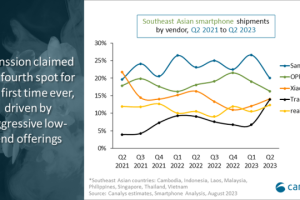~Dr Swati Garekar, Consultant Pediatric Cardiologist, Fortis Hospital, Mulund ~
‘Be watchful of what you eat’ may have been told to you man times. You may be eating good amounts of food, however the questions lies in whether you are maintaining a nutritious and well balanced diet; especially to ensure your heart is healthy. Keeping a healthy heart is not only dependant on your food intake but also on one’s lifestyle modifications.
Dr Swati Garekar, Consultant Pediatric Cardiologist, Fortis Hospital, Mulund, highlights a 360 degree approach to maintaining a nourished and healthy heart.
- Eat Right: Follow a balanced diet and drink enough water. Eat a variety of vegetables and fruits daily (four and a half cups in a day). Avoid canned products and minimize packaged juices. Consume whole grains (polished rice, maida are not whole grains) daily (3.5cups a day). Opt for fat-free or low fat-dairy products (milk, cheese, yoghurt). Consume proteins from legumes (all kinds of dals), eggs, chicken, sea food, nuts and seeds. Limit oil intake to 5 teaspoons a day per person. Limit added sugar (not naturally occurring sugar) and salt.
- Watch your weight. Obesity leads to high Cholesterol, high Blood Pressure and Diabetes that contribute to Heart disease. BMI (reflects the fat content of the body) of less than 25kg/m2 is desirable, that more than 25 means you are overweight. BMI of more than 30 means that you are obese. The BMI is easy to calculate; it uses the height and weight to give a range of normal BMI.
- Exercise Daily. Our whole body and especially the Heart, benefits from regular exercise. Healthy adults need 20mins of moderate intensity exercise (like brisk walking, dancing, cycling, swimming) a day. In addition, muscle strengthening activities that involve all major muscle groups (legs, hips, back, abdomen, chest, shoulder, arms) should be done twice a week. Teenagers need 60 minutes of moderate to vigorous intensity exercise a day.
- Check your Blood Pressure. High Blood Pressure(BP) is a critical risk factor for Heart disease. It causes Congestive Heart Failure happens when the heart cannot pump enough blood out to the other organs, this can be a deadly condition. For most adults, BP of less than 120/80mm Hg is desirable. A reading of 140/90mm Hg is considered as High Blood Pressure. Check your blood pressure frequently; controlling weight and diet are useful to control blood pressure.
- Get your blood sugar level checked if you have family history of Diabetes or if you are over 45yrs of age. A desirable fasting Blood Sugar level is 100mg/dl or less. Keep Diabetes under control with diet, exercise and medications as advised by your doctor.
- Smoking and excessive Alcohol kill. Smoking injures blood vessel linings; break the habit. Avoid second hand smoke too. Alcohol in excess promotes high BP and obesity. Drink only in moderation.
- Be familiar with the warning signs of a Heart Attack. There may be chest pain of squeezing type that comes and goes. It may spread to neck, back, arms; you may feel nauseated, short of breath, dizzy and break out in cold sweat. If you suspect a heart attack, reach a well equipped hospital with round the clock availability of Cardiologists and a well-equipped CathLab, as soon as you can.




























